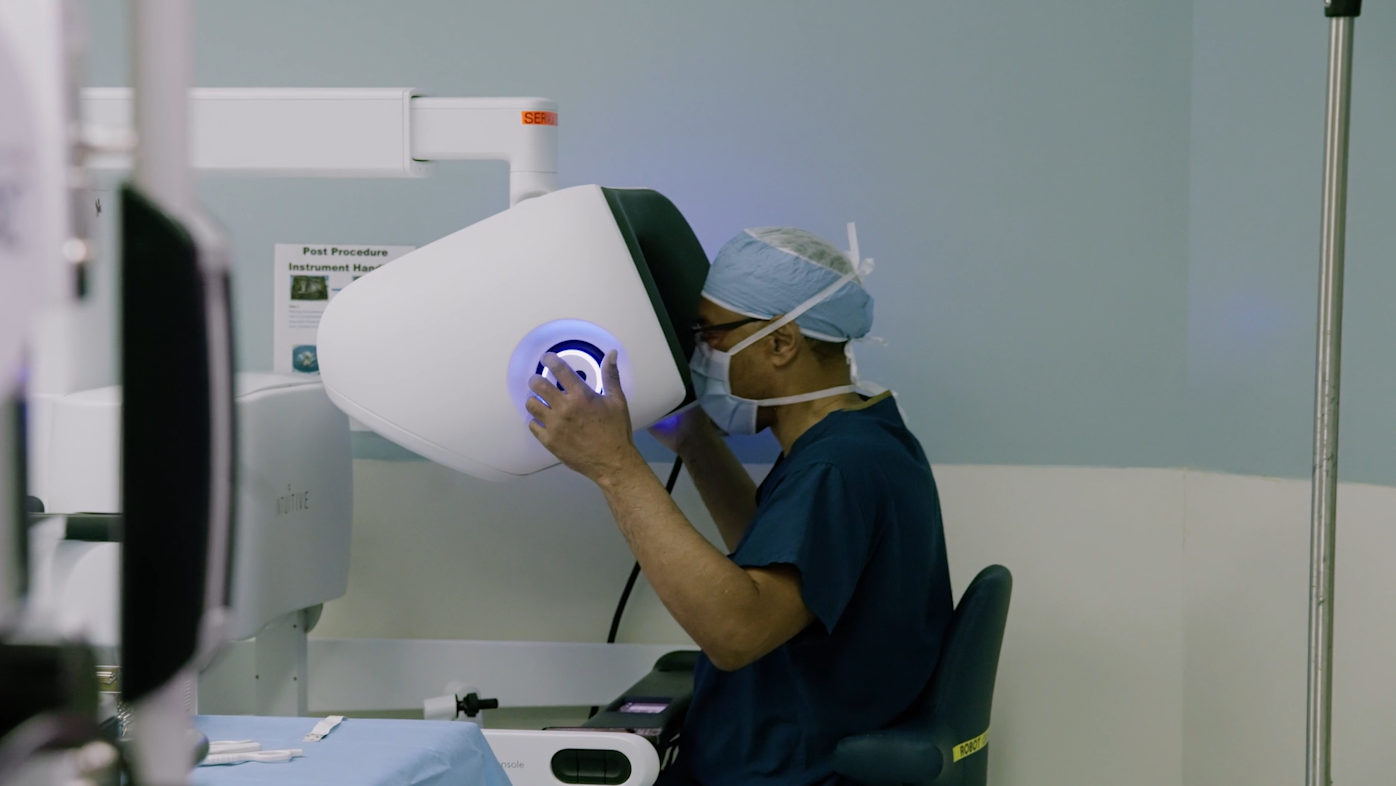
Robotic surgery reduces risk of pancreatic cancer
When David Jacks learned he had pancreatic cysts, he was treated with robotic surgery to reduce his risk of developing pancreatic cancer.
Before 2020, the word “pandemic” was simply something many people learned and forgot after leaving high school history and science classes. To the general public, a pandemic seemed unlikely, cinematic and certainly not something we’d want to experience in a lifetime.
Then, on March 11, 2020, the World Health Organization (WHO) declared COVID-19 a pandemic. Almost immediately, we saw school closures, stay-at-home orders and a shocking run on household necessities, such as toilet paper and disinfectants.
Health care workers, however, saw something very different. They saw the rollout of immediate and emergency protocols, the impact of the crisis on their families and mental health — and, worst of all, they saw lives taken and families torn apart by an illness that, for some, was deadly.
A look back
Today, we can reflect on those years with gratitude and grace — gratitude for those on the front lines and grace for the people who came together to overcome it. While COVID-19 will never entirely go away, vaccination has made it manageable. And while we must continue to take precautions to keep ourselves and our communities safe, we are all that much wiser due to what the pandemic has taught us.
As we mark five years since the start of it all, a few Sharp clinicians and leaders reflect on the pandemic, how it impacted them and how they’ve seen it make permanent changes in health care.
Streamlining processes “Although the COVID pandemic years placed immense strain on hospital systems, this adversity spurred the development of streamlined processes to tackle future disasters with greater efficiency and organization. Today, these innovations have become integral to our operations, enabling us to respond to a wide range of challenges with agility and precision.” – Dr. Omid Bakhtar, pathologist affiliated with Sharp HealthCare and medical director of Sharp's Outreach Lab
Focusing on preparedness “The pandemic taught me several important lessons. One of them is the importance of preparedness. We learned many best practices from the pandemic on how to best care for our patients and community while also supporting our caregivers who do this amazing work. Leveraging this knowledge with continued collaboration and innovation will ensure we are able to continue meeting the needs of our community while also promoting a culture of self-care and resilience for those on the frontline.” – Nic Breeland, director of clinical and ancillary services at Sharp Coronado Hospital
Leaning on clinical trials “The biggest thing I learned is that the role of clinical trials when treating and preventing infections like COVID-19 is unparalleled. Clinical trials produce evidence that can be turned into real practice instead of unsubstantiated therapies or "trials of luck." Thanks to esteemed institutions like the National Institute of Health (NIH) and the Infectious Diseases Society of America (IDSA), we have guidelines that are updated frequently, based on scientific standards, that help us care for patients the right way. For COVID-19 specifically, we have learned how to best use therapies at different points of infection, catering to patients with varying risk factors. We learned that ivermectin should never be used to treat COVID-19, period. To me, this is the greatest takeaway, and has helped shed light on the medical power of clinical trials.” – Dr. Hai Shao, infectious disease specialist affiliated with Sharp Chula Vista Medical Center
Implementing new technologies “Changes in how we do critical care emerged from the pandemic. I see a broader application now of best practices in management of severe respiratory failure — knowledge we actually had pre-pandemic but learned to implement more efficiently and regularly. We gained much more experience in the use of ECMO (extracorporeal membrane oxygenation), the most extreme form of life support, which carries over today. And by escalating the use of video-conferencing for meetings, educational demonstrations and other administrative functions, I think we have been able to achieve significant efficiencies which we can continue to use today.” – Dr. David Willms, pulmonologist and critical care doctor affiliated with Sharp Memorial Hospital
Conserving necessary supplies “One of the biggest lessons those on the front lines have learned is to be mindful of the medical supplies and stock we have available to treat patients. During the COVID pandemic, we were constantly battling supply shortages. Such challenges only heightened the ongoing stress during this precarious time. However, we remained steadfast and devised alternatives to provide the much-needed care that our patients required while also ensuring the safety of our patients, staff and visitors. Since then, this has helped us well in the long run. We have improved processes in place to manage product shortages due to other causes, such as natural disasters and product recalls.” – Gary Phelps, manager of respiratory services at Sharp Grossmont Hospital
Finding gratitude where it matters “At the start of the pandemic, one of my patients gave me a wonderful painting depicting health care workers as they sacrificed themselves for the cause of helping others. It was a beautiful tribute to such skill and dedication. This was a worldwide engagement, as the virus knew no bounds, and we saw great diversity in the response to the pandemic.” – Dr. Jamie Saben, department chair of Family Medicine, Sharp Rees-Stealy Medical Group
Get the latest health and wellness news, trends and patient stories from Sharp Health News and subscribe to our weekly newsletter by clicking the "Sign up" link below.

The Sharp Health News Team are content authors who write and produce stories about Sharp HealthCare and its hospitals, clinics, medical groups and health plan.

Dr. Omid Bakhtar is a board-certified pathologist affiliated with Sharp HealthCare.

Nic Breeland is the director of clinical and ancillary services at Sharp Coronado Hospital.

Dr. Hai Shao is a board-certified infectious disease specialist affiliated with Sharp Chula Vista Medical Center.

Dr. David Willms is a board-certified pulmonologist and critical care doctor with Sharp Community Medical Group and affiliated with Sharp Chula Vista Medical Center, Sharp Coronado Hospital and Sharp Memorial Hospital.

Gary Phelps is the manager of respiratory therapy at Sharp Grossmont Hospital.
Our weekly email brings you the latest health tips, recipes and stories.